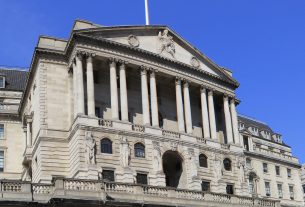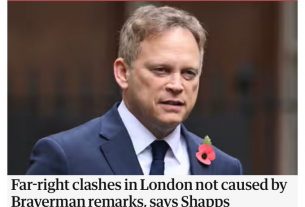Anger is growing at the government’s failure to engage in talks to avoid the UK’s biggest rail strikes in three decades.
Transport secretary Grant Shapps is insistent that it is not the role of the government to negotiate rail workers’ pay and working conditions with unions. Shapps dismissed claims the government wants the strikes to continue as “crazy”.
However, Labour has accused Boris Johnson’s government of stoking the dispute for political ends. “They want the country to grind to a halt so they can feed off the division. Instead of spending their time this week around the negotiating table, they are designing attack ads,” said party leader Sir Keir Starmer.
“Instead of grown-up conversations to take the heat out of the situation, they are pouring petrol on the fire. Instead of bringing people together in the national interest, they are stoking division in their political interest.”
Shapps responded to Starmer’s claims, telling BBC’s Sunday Politics show: “In what sort of crazy world would anyone want to see our transport sector grind to a halt?”
The transport secretary cited the problems to be faced by students unable to take GCSE and A’ level exams, people missing hospital appointments and others unable to get to work. Shapps called the trade unions’ demands for government to engage in talks to avert the strikes as an “11th hour stunt”.
RMT general secretary Mick Lynch accused Shapps of “fabrication” over the claim, telling Sky News’ Sophie Ridge on Sunday: “He’s making it up. What he’s saying is untrue. We didn’t attend a rally instead of negotiations. There were no negotiations scheduled and the train operating companies have not spoken to me or any of my officials since Thursday at lunchtime”.
Three days of strikes start Tuesday
Some 40,000 Network Rail staff at 13 operators workers are set to begin their three days of strikes tomorrow (June 21) – followed by Thursday and Saturday – bringing Britain’s rail network to a standstill. Rail workers are striking over pay, working conditions and redundancy disputes with their walkout expected to result in major travel disruption across the country.
Most lines will be closed while those that manage to remain open will only be running a limited service. Compounding the disruption will be a separate 24-hour walkout on the London Tube on Tuesday (June 21) by RMT and Unite members.
Economists are warning of a big hit to June’s gross domestic product (GDP) figures. They estimate this month’s GDP will suffer a 0.3% to 0.4% from the three days of strikes with around 5% of the workforce – one in 20 workers – unable to get to work.
Rail strikes until Christmas in ‘war of attrition’, unions warn
The Telegraph is reporting that rail unions are threatening “to continue striking until Christmas”. It describes a war of “attrition” with the RMT claiming it has a mandate for six months of strikes before tomorrow’s planned shutdown of services.
The Financial Times quotes RMT general secretary Mick Lynch’s warning about further strikes. “Until there is a settlement there will be a campaign of strike action, and other unions will join us . . . I expect there to be more strikes,” said Lynch, adding: “We will renew the mandates until we get a settlement to the problems in the dispute”.
However, Lynch signalled the chaos and disruption could be avoided and the strikes called off if train operators accede to the unions’ demands. He told LBC radio yesterday (Sunday): “We’ve got a threat to jobs. We want a guarantee of no compulsory redundancies.”
More strikes are looming in other public sectors with teachers’ unions preparing ballots for action if their pay settlements do not align with the soaring rates of inflaton.
Education secretary Nadim Zahawi will be notified on Wednesday that the national Education Union will be balloting its 450,000 members unless its pay offer is close to inflation.
NHS workers may also follow suit if their pay rises do not tally with the inflation rate, further impacting an already crisis-stricken NHS.




